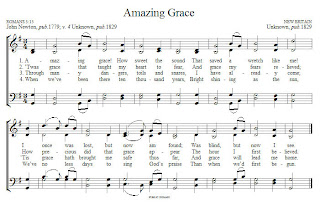Their nature; their reality; their importance; their dangers.
I. The nature of a revival; or, what is meant by a revival of religion. It is a familiar fact that religion in the soul is sometimes in a lower and sometimes in a higher state. The passage from the one to the other is more or less rapid. So in a church or community. There are periods of decline and periods of refreshing. So under the Old Testament dispensation. So in the times of Christ. So in the time of the Reformation, in the time of Edwards and since. The phrase has here acquired a conventional sense. It is confined to a sudden change from general inattention to a general attention to religion, to those seasons in which the zeal of Christians is manifestly increased, and in which large numbers of persons are converted to God.
II. The reality of any such experience in the Church is denied,
1. By Rationalists and all who deny the supernatural operations of the Spirit of God.
2. By those who deny that the converting influences of the Spirit are ever exerted except in connection with the sacraments.
3. By those whose theory of religion does not admit of instantaneous or rapid conversions; who hold that the germ of piety implanted in baptism is by an educational process to be nurtured into conversion.
4. By those who, while admitting the facts of the Bible on the subject, seem disposed to regard them as belonging rather to the class of miracles than of the normal state of the Church. Granting the facts of supernatural divine influence, there is no objection to the theory of revivals. That is, there is nothing in them inconsistent with the nature of religion or with the modes of divine operation. It is a question of fact. These, of course, from Scripture and history are decisive.
The question of reality may be viewed in another light. That is, Whether any given religious excitement is a genuine revival or not?
1. It is of course not to be taken for granted that every such excitement is a work of God. It may be nothing but the product of acts and eloquence of men, and consist in the excitement of mere natural feelings. Much no doubt which passes for revival is more or less of that character.
2. The criteria for the decision between true and false revivals are the same as those for deciding between true and false religion. These are, First, their origin. Are they due to the preaching of the truth? Secondly, their character. Is the excitement humble, reverential, peaceful, benevolent, holy; or is the feeling manifested proud, censorious. malicious, denunciatory, schismatical, irreverent? Thirdly, their permanent fruits. This is the only certain test. The case of Beaufort, S. C.
3. Perfection not to be expected in revivals any more than in the religion of individuals. Such excitements are not to be condemned because of some evils, and those often great ones.
III. Their importance. This may be estimated, proximately, in two ways.
1. By the importance of the end which they are assumed to answer. The salvation of many souls and the elevation of the piety of the Church.
2. Historically, i.e., by a reference to the effects which they have produced. The day of Pentecost. The Reformation. The times of Wesley in England and the times of Whitefield and the Tennants, Edwards and others in this country. Estimated by these standards, their importance is incalculable.
IV. False views of their importance.
1. That they are the only way in which religion can be promoted. Many say they are the hope of the Church. Many so rely upon them that they expect little or nothing except during such periods. They lie on their oars. They do little, and sink in person and zeal.
2. Another false view is that they are the best way. They are great mercies, but there are greater. When there have been years of famine a superabundant harvest is a great blessing. But it had been better had each harvest been good. There is a better state as well as a greater amount of good in the latter than in the former case. A regular normal increase is better than violent alternations. General permanent health is better than exuberant joyousness alternating with depression.
V. Dangers. These may be learned in two ways.
1. From their nature, or a priori.
2. From experience, or a posteriori.
1. From their nature. Excitement in proportion to its intensity in an individual or in a community calls into vigorous exercise both the good and bad elements which may be extant. It makes the self–righteous, the censorious, the vain, more so. It calls up and calls out all the evil elements in the Church. It sets them on new, unauthorized or improper means of promoting religion. The evil elements often mingle with the good, so as to be far more apparent than the good. The desolations of the thunderstorm or the flood are often more apparent than their benefits.
2. From experience we find that the following evils are apt to attend revivals.
(a) False teachers, false doctrines, false or improper measures, as in the Apostolic age.
(b) False views of religion, fanaticism, enthusiasm.
(c) Contempt of the ordinary means of grace, and neglect of them.
(d) Disparagement of religion in the eyes of serious, reflecting men.
(e) Denunciation and schisms.
(f) False views of the proper kind of preaching and neglect of the instruction of the young.








